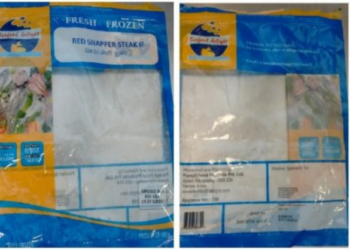The Federal Motor Carrier Safety Administration is back to their rulemaking ways. This time the agency has proposed a rule on broker transparency. A little history on this is that in May of 2020, Owner-Operator Independent Drivers Association and the Small Business in Transportation Coalition petitioned the Federal Motor Carrier Safety Administration to improve broker transparency with particular emphasis on rate visibility.
There is a lot of speculation as to what brokers margin per load is lately and given the rough freight market of the past few years, it’s not surprising.
OOIDA requested that transaction information be provided within 48 hours of completion of contracted services and the SBTC wanted that and brokers prohibited from requiring carriers to waive their rights to review transaction records. The two organizations are asking the FMCSA to not allow exemptions for brokers around transparency requirements.
A very long four years later, the FMCSA has turned the petitions into a proposed rule.
According to the FMCSA, “The proposed rule would revise the regulatory text to make clear that brokers have a regulatory obligation to provide transaction records to the transacting parties on request. The proposal would also make changes to the format and content of the records.”
The proposed rule includes four major provisions:
Brokers must keep records in electronic format: This would make it easier for carriers and shippers “to review broker records on request, and remotely, as compared to the current practice of some brokers who respond to transparency requests by making only physical records available at their principal place of business. The agency believes that many brokers already maintain their records in an electronic format.”
Revisions to contents of brokers’ records, including itemizing charges and fees: FMCSA proposes eliminating a current distinction in the regulations between brokerage and non-brokerage services, and instead “require that the records contain, for each shipment in the transaction, all charges and payments connected to the shipment, including a description, amount, and date,” along with any claims connected to the shipment, such as a shipper’s claims for damage or delay. “This amendment would ensure the parties have full visibility into the payments, fees, and charges associated with the transaction so they can resolve issues and disputes among themselves without resorting to costlier remedies.”
Brokers must provide records upon request: FMCSA stated that the current regulation frames the broker transparency requirement as a right of the transacting parties to review the records. However, “the proposed amendment would reframe broker transparency as a regulatory duty imposed on brokers to provide records to the transacting parties.”
Records must be provided within 48 hours of request: This provision “is intended to ensure that the requesting party receives the records in a timely manner, to support the resolution of issues around service or payment.”
The proposed rule, as of right now, is still just a proposed rule. There will be a proper comment period where people can leave their thoughts. This link will take you to the rule in its entirety and the tab for document comments. The comment period will close on Jan. 21, 2025.
As of right now the preliminary comments are a bit of a mixed bag with carriers in favor of the visibility and others pushing back on the FMCSA for choosing this as an area to focus on regulation versus freight fraud and much bigger issues facing the industry.
Market Check. This week’s market heads out west to Salt Lake City. Salt Lake has seen a drastic rise in outbound tender rejections while outbound tender volumes continue to fall. This has created a capacity crunch in the market. Outbound tender volumes have dropped 3.3% and given that we are heading into a holiday week, those numbers are unlikely to be revived until the middle of next week as shippers come back online and get caught up.
The real capacity crunch comes with the sharply rising outbound tender rejections. That index has risen 405 basis points week over week, getting up to 11.11%. Rejections are currently double the levels seen earlier this year, which was holding the record at 5.51%. Shippers and brokers can expect low contract carrier compliance as the week goes on. Any shipment that isn’t mission critical should pre-emptively be rolled to next week to be recovered.
Who’s with whom. The LTL carrier that has nine lives lives to see another. Roadrunner announced its CEO and the private equity group they are a part of have taken a controlling interest in the company. Roadrunner has found itself under new leadership…again.
Prospero Staff Capital has acquired a majority stake in Roadrunner. The deal was co-led by Chris Jamroz, Roadrunner executive chairman and CEO, and investor Ted Kellner. The group replaces activist investor Elliott Investment Management as the majority holder. Elliott will retain a minority interest in the company.
The plan this time is to use “fresh capital” for organic growth and acquisitions. Following the announcement the shares of RRTS, traded on pink sheets, which means you don’t see it on the New York Stock Exchange, were up 41.9%.
Here’s hoping this is the life the company needs to take off in the right direction.
The more you know
Macy’s says lone worker hid up to $154M in delivery expenses since 2021
Borderlands Mexico: Entrepreneurs, small business see value of investing in Mexico
Is Thanksgiving going to disrupt the status quo?
When “No Comment” Isn’t an Option: FMCSA Publishes Proposed “Broker Transparency”
Modern Logistics partners with ATC Aviation for Latin America expansion
The post Check Call: A new set of rules for freight brokers appeared first on FreightWaves.















